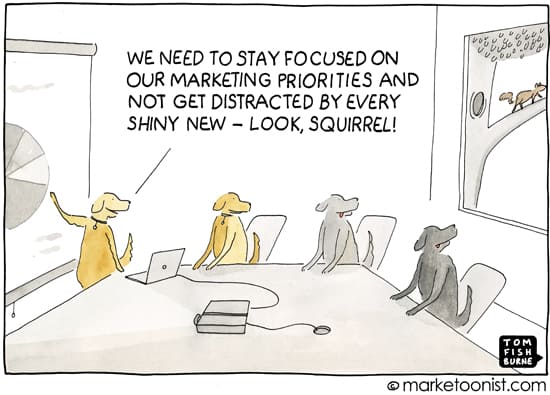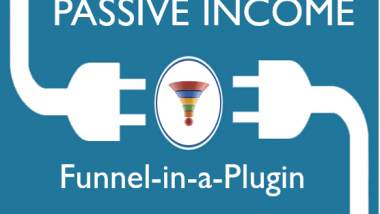
In the online marketing world, there are countless stories of scams, fly-by-night make money online sites, and claims of fast riches by marketers who disappear even faster once they’ve taken your money.
Unfortunately, for the most part, they are true.
Anyone who has decided to try their hand at online marketing will come across these very quickly – it’s almost like a rite of passage that we all have to go through.
The online marketing scene is awash with crooks and conmen… but don’t let that stop you from trying.
It’s important to see the situation as it is, but not see it worse than it is. As well as all the crooks, there are also a lot of reputable vendors and excellent products and courses around.
It IS possible (though not necessarily easy) to make money online, so don’t be discouraged.
You just need to be sure you follow the right people, and be selective when buying a product or training course… and the 10 questions below will help you to make wise buying decisions.

Do I Really Need It?
This is probably the MOST important question you’ll need to ask yourself before you hit the buy button.
When getting started with online marketing, it’s imperative to choose a PROVEN business model that’s currently working and making other people money.
Choose just one model and focus on it until you succeed.
Only when you have a taste of finishing what you’ve started, will you respect yourself.
Before purchasing any marketing course/software, you’ll need to decide if it’s relevant to what you’re doing. If it’s not, close the sales page and move on.
Too many beginners lose focus and get pulled in several different directions because they get tempted by claims of ‘quick and easy riches’.
There’s a term that has been coined to describe this problem – it’s called ‘Shiny Object Syndrome’.

They want the ‘push button fortunes’ and ‘cash tsunamis’ which do not exist.
Their emotions get the best of them and they buy any and every infoproduct that promises them overnight wealth.
The truth of the matter is that you need to be entirely methodical in your approach to an online business. Don’t let your emotions overwhelm you and dictate your buying decisions.
FOCUS FOCUS FOCUS!

Who Created It?
It’s imperative that you do your research on the product vendor.
The sad truth is that there are thousands of individuals who will lie and cheat and take moral detours just to make a quick buck – and many of them do so at the expense of the naive masses.
You have to be smarter than them.
Check if the vendor is walking the talk.
For example, if they’re selling an ecommerce course, do your research and see if they have their own ecommerce store that’s pulling in sales.
If they’re teaching Pinterest marketing, check if they have thousands of visitors to their own Pinterest boards.
Many dodgy vendors just rehash infoproducts and churn out untested theory that don’t work in the real world.
They make their money from serial launching shoddy and shallow products about marketing models that they’ve not tested themselves. This becomes very obvious if you do your research.
Check what products they’ve released and if they have tons of courses on several different marketing models, you can be almost certain that they’re a jack of all trades, but a master of none.
Close the sales page, and move on.

Do the Claims in the Sales Copy Sound Too Good to Be True?
There are many legitimate shortcuts and tools to help you save time. But if it sounds too good to be true, it almost always is.
- Software products which make claims of being able to drive millions of visitors to your sites…
- Or special hacks and loopholes that will rank your website to the top of Google in 10 seconds or less while you do nothing…
- Or how you can make $4,342.97 in 20 minutes while you’re sipping cocktails by the beach….
You’ve probably seen them all – bold, unrealistic claims designed to hook you by the eyeballs and reel you into the sales copy which is all foam and no beer.
These claims are as phony as a $3 bill. Don’t get taken in by them. Close the page

Does the Vendor Have ‘Old Replicas’ of the Same Product?
If you do enough research, you may discover that some vendors continuously release several products which seem to be carbon copies of each other… and the only thing that differs is the updated sales page and the new product name.
This practice is particularly common in the ‘make money online’ scene.
Why would a vendor release a new self-hosted autoresponder when he already released three similar autoresponders over the past 3 years?
Why wouldn’t he just support and improve upon his existing products?
The answer is simple – the money is in the launching.
These vendors make their money when they burst on the scene with a new product and the clueless hordes lap it up… only for the unwashed masses to later discover that the product is unadulterated rubbish, and the vendor is no longer answering support tickets because he’s laughing all the way to the bank.
If you notice that a vendor has multiple products which resemble each other, you know what you need to do… Close the page.

Where Are the Income Stats Coming From?
It’s common to see income stats and screenshots on many sales pages. Very often, you have no idea which dark hole these stats are being pulled out from.
The whole point of showing you these numbers is to whet your appetite for the product and make you ‘glossy eyed’ and believing that the product can easily generate these sums for you.
Here’s what you need to know – most income stats are usually fake and should be taken with a bucket of salt. The bigger the bucket, the better.
It is of course possible to earn huge sums of money online, but it will take time, effort, blood, sweat and tears – and a lot of studying and trying things out.
Online success is an achievable goal, but it is NOT an easy one.
The only income stats that matter are YOUR OWN. Don’t get swayed by the ones that litter the sales pages. And only believe the ones from vendors you trust (see Question #2 above).

Are The Testimonials Legit?
This is a tricky one. So, you’ll need to be extra careful.
A good product will have testimonials from REAL customers who are satisfied with their purchases and have seen results from applying the information given.
Often, these will be shown as Facebook comments, video testimonials, photo proof and so on. While all of these can be faked or bought, generally, you can sense if the testimonials are trustworthy. Be vigilant.
At the other end of the spectrum are sales pages with testimonials from people who are marketers too.
Often, these ‘kind folk’ are affiliates for the product and friends with the vendor… and by scratching the vendor’s back now, they’re ensuring that their own back gets scratched later. They have each other’s back and zero thought is given to the unsuspecting buyer who’s just another number in their income stats.
So, where does that leave you? Easy! You’re closing the page.

Does It Come With A Money Back Guarantee?
While you should never abuse a guarantee just so you can get a free lunch, it doesn’t hurt to see if a product has a money back guarantee.
Sometimes, products are sold with blind sales copy and what you get is not your cup of tea. In cases like these, having a guarantee will help to keep you risk-free.
(As an aside, anything with blind sales copy is a BIG warning sign).
There are exceptions. Many good PLR sellers for example do not offer money back guarantees, simply because too many people abuse it. In these case, the vendor reputation is the best guide.

Did I Look For Reviews?
Always look for reviews. Just Google “product name + reviews”. Usually, you’ll see several videos with people gushing about the product and singing its praises.
Remember your bucket of salt from earlier? Fill it up again and take these reviews with salt. In most cases, the review videos are made by affiliates who are trying to make a sale.
Nevertheless, it doesn’t hurt to watch a few of these videos to understand more about the product. Some reviews may be unbiased and will mention the downsides to these products.
In some cases, you may find written reviews or videos made by people who totally dislike the product or vendor.
These reviewers usually feel an innate responsibility to educate others to make better buying decisions – and they may also feel a need to stymie the flood of disingenuous products infiltrating the market.
It’s a losing battle, but their reviews can be an eye-opening experience for you and aid in your buying decision.

Is The Vendor Looking Out For Me... Or For Number One?
It’s very common to see marketers spouting ethics and claiming to want to ‘help people’ by ‘providing value’ … but what they say and do are worlds apart.
The truth of the matter is that far too many marketers have questionable ethics, and the only people they want to help is themselves… and the value they wish to increase is their bank balance.
This is why the market is cluttered with online marketing courses and products that are abysmal, misleading and disappointing.
Do your research and check how many upsells and downsells a product has, if possible. It’s usually easy to do -all you need to do is Google “product name + affiliate” and you’ll likely come across JV pages where you can see the full sales funnel of the product.
If there are 10 or more products in a funnel, you can be almost certain that the vendor can’t give two hoots about your buying experience.
Analyse the vendor’s approach to business and ethics. For you as a potential cs a customer, how they make their money is far more important than how much they make.

Do I Have the Money to Spend?
Last but not least, do NOT spend money that you do not have on any course based on promises of quick and easy riches – especially if you’re desperate to make money quickly.
It’s NEVER quick… and it’s NEVER easy.
Thousands have racked up debt on their credit cards by buying into the hype of ‘overnight wealth’ only to struggle with the bills later and not make a cent in return.
I count myself among them. When I first started online I spent a lot of money on a lot of shiny objects… and not just $7 ones, some that cost thousands.
Makes me cringe when I think about it now – but as I say, it was my ‘rite of passage’.
But you can avoid the same costly mistakes. Be conservative in your spending when you’re trying to build your online business.
Always remember that almost all buying decisions are emotional. This explains why people can spend thousands on products that do not deliver.
This is a consequence and not a coincidence.
But once you stop and start asking the questions listed above, logic will take over your emotions and put you in the driver’s seat.
No longer will the persuasive and hypnotic sales copy lead you by the nose like a cow being led to the slaughter.
No… you are in control now. You and your trusty bucket of salt.
While the online marketing scene is replete with scams and shady shenanigans… the good news is that are several top-shelf online marketing training programs and courses on the market which can help you immeasurably. You can definitely find gems in the rough.
Follow the right people, use this list as a roadmap and you’ll be able to find the products and training you need, and avoid those that will not only waste your money, but actually hold you back from success.

